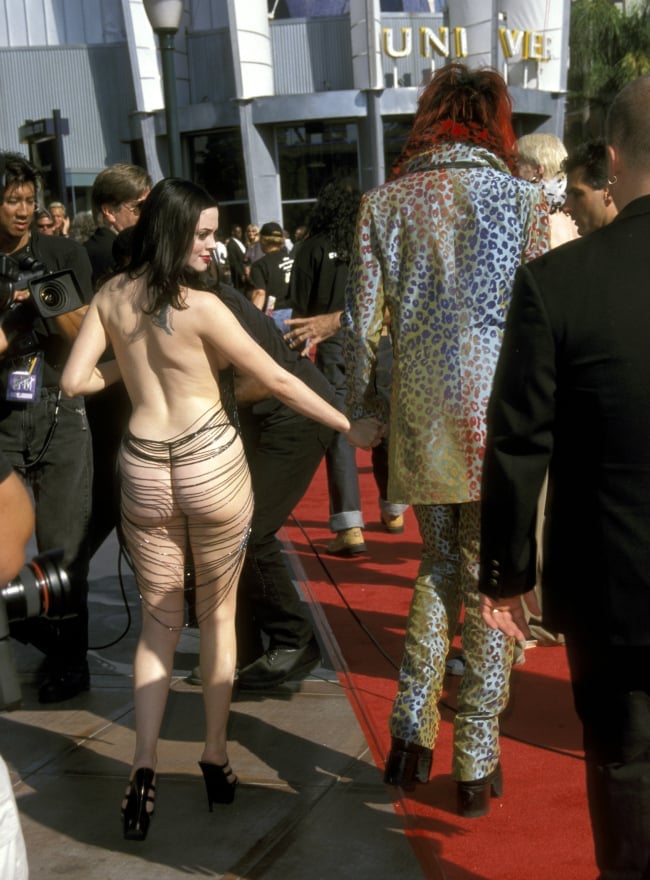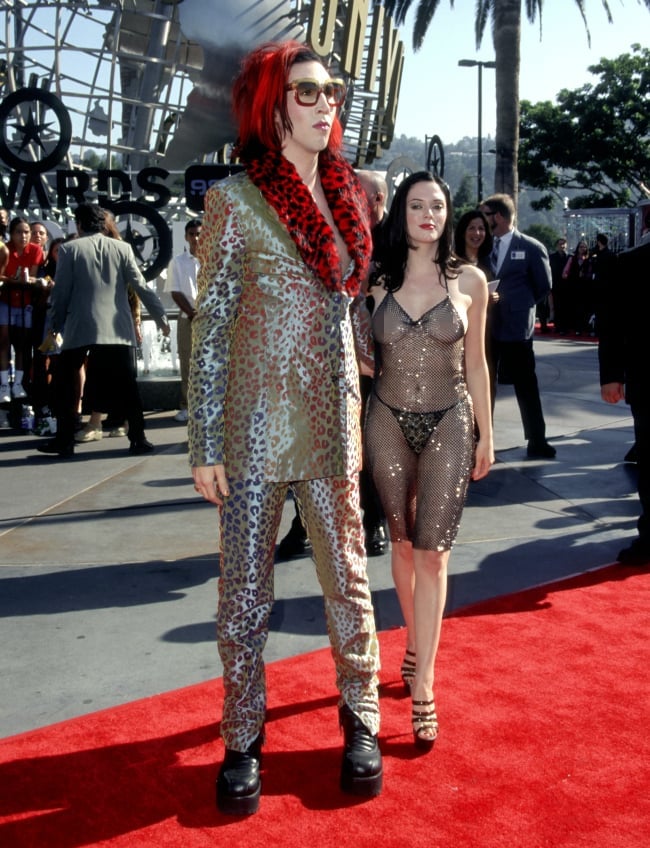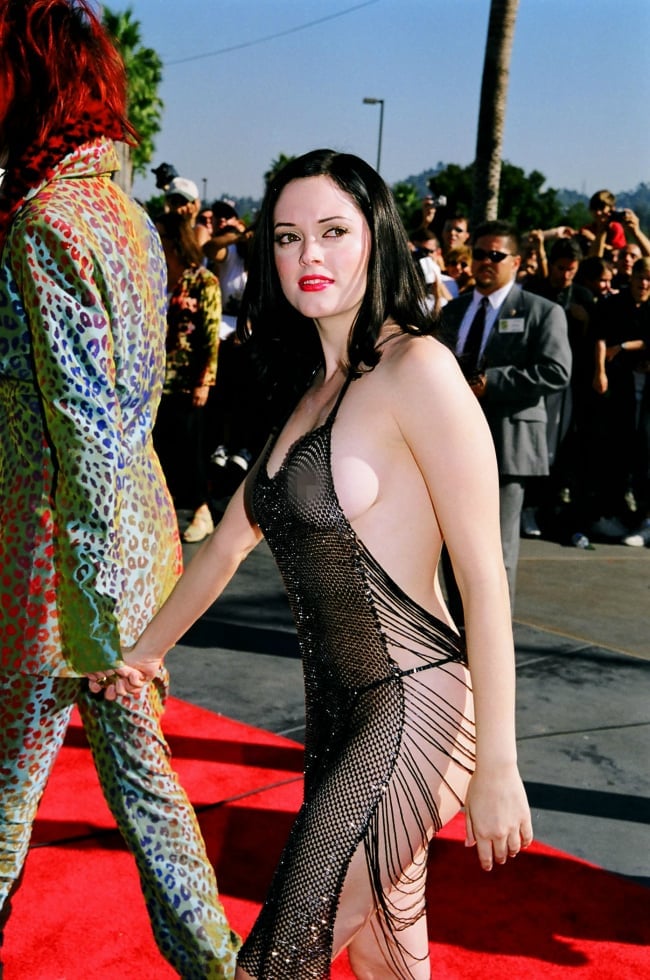The 2018 awards season heralded a new era of activism in the entertainment industry. With black dresses, white roses and ‘Time’s Up‘ pins, the men and women of Hollywood used the red carpet as a platform to highlight the culture of sexual assault and harassment that had been allowed to flourish within their profession.
Among those at the centre of this advocacy is Rose McGowan, one of several actors who went public with allegations that against producer Harvey Weinstein late last year. Her claims that the married father raped her in 1997 were among those that propelled the #MeToo movement.
But the 44-year-old Charmed star has revealed she first protested the abuse two decades ago on the red carpet of the 1998 Video Music Awards – long before she was able to speak out or we were ready to listen.
During an interview on The Dr Oz Show, McGowan explained that, despite speculation at the time, the infamous mesh dress she wore to the ceremony wasn’t a ploy for publicity.
Instead, she told the program, the revealing outfit was a direct response to her alleged assault.
“That was my first public appearance after being sexually assaulted. I was like, ‘Is this what you want?’” the Italian born actor said. “I’ve never worn something like that before or since… That was a political statement.
“Of course, there was no Twitter at the time or Instagram, no way to speak for yourself.”



